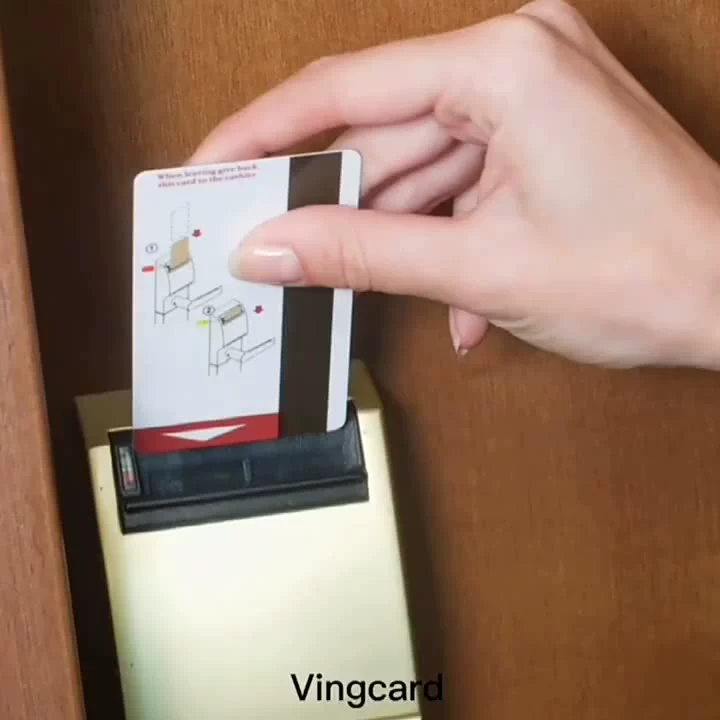Hotel room keys have become an essential part of the modern travel experience, replacing traditional metal keys with sleek, electronic key cards. These plastic cards, often embedded with a magnetic strip or chip, allow guests to access their rooms with ease. However, one common question that many travelers ask is whether hotel room keys are waterproof. This article explores the durability of hotel key cards, the factors that affect their water resistance, and what guests can do to protect them during their stay. Understanding the limitations of these key cards can help travelers avoid inconvenience and ensure a smoother check-in and check-out process.
The Construction of Hotel Key Cards
Most hotel key cards are made from a combination of materials designed for both functionality and durability. Typically, they consist of a plastic base, often polycarbonate or PVC, which provides structural integrity. The key card also contains a magnetic stripe or a microchip that interacts with the door lock system. While these materials are chosen for their strength, they are not inherently waterproof. The magnetic stripe, in particular, is vulnerable to damage from moisture, as exposure to water can degrade the data stored on it.
Are Hotel Key Cards Waterproof?

The short answer is no—hotel key cards are not fully waterproof. While some hotels may use a protective coating or lamination on the key cards, this does not make them completely impervious to water. If a key card gets wet, especially if it is submerged or exposed to excessive moisture, the magnetic stripe or chip could be damaged, rendering the card ineffective. In some cases, the card might still work after drying, but there is always a risk of malfunction.
Factors That Affect Key Card Durability

Several factors can influence how well a hotel key card withstands exposure to water. One of the most significant is the type of material used in its construction. High-quality key cards may have a more robust design, including a sealed edge or a protective layer that offers some degree of water resistance. However, even these may not be entirely waterproof. Another factor is the environment in which the key card is used. For example, a key card that is frequently handled, bent, or exposed to extreme temperatures may be more prone to damage than one that is kept in a dry, protected place.
What Happens If a Key Card Gets Wet?

If a hotel key card becomes wet, the first step is to dry it immediately. Using a soft cloth or paper towel to gently wipe away any excess moisture can help prevent further damage. It is important to avoid rubbing the card vigorously, as this can cause additional wear on the magnetic stripe or chip. Once dried, the guest should test the key card at the door to see if it works. If the card fails to function, the hotel staff can usually provide a replacement. In some cases, the issue may be temporary, and the card may start working again after a short period of drying.
Tips for Protecting Your Hotel Key Card

To minimize the risk of damaging a hotel key card, travelers can take a few simple precautions. One of the best strategies is to keep the key card in a dry, secure location, such as a wallet or a small pouch. Avoid placing it in a pocket where it might come into contact with liquids, such as a drink or rainwater. Additionally, guests should avoid exposing the key card to extreme heat or cold, as these conditions can also affect its performance. If a key card is accidentally soaked, it is advisable to inform the hotel staff as soon as possible so that a replacement can be issued promptly.
What Should You Do If Your Key Card Fails?

If a hotel key card stops working, the first step is to contact the front desk. Most hotels have a system in place to quickly issue a new key card, ensuring that guests can still access their rooms without delay. It is also a good idea to ask the hotel staff about the reason for the failure, as this can help identify whether the issue was caused by water damage, wear and tear, or a technical problem with the lock system. In some cases, the hotel may offer a refund or compensation, depending on the circumstances.
The Future of Hotel Key Technology

As technology continues to evolve, many hotels are exploring alternative methods for room access. Some are transitioning to digital key systems, which allow guests to use their smartphones to unlock their doors. These digital keys are typically more durable and less susceptible to water damage than traditional key cards. Additionally, they offer greater convenience, as guests can access their rooms without carrying a physical key. While this technology is still in the early stages of adoption, it represents a promising solution to the challenges associated with traditional key cards.
Conclusion
While hotel key cards are convenient and widely used, they are not waterproof and can be damaged by exposure to moisture. Understanding the limitations of these cards and taking steps to protect them can help travelers avoid potential issues during their stay. By following simple tips such as keeping the key card dry and reporting any problems promptly, guests can ensure a smooth and hassle-free experience. As the hospitality industry continues to innovate, future advancements in key technology may offer even more reliable and durable solutions for room access.



